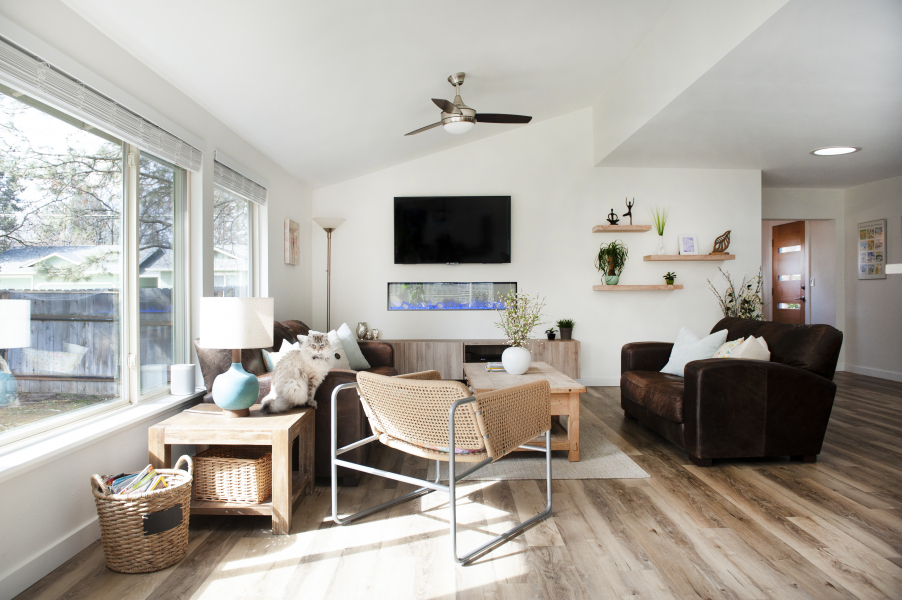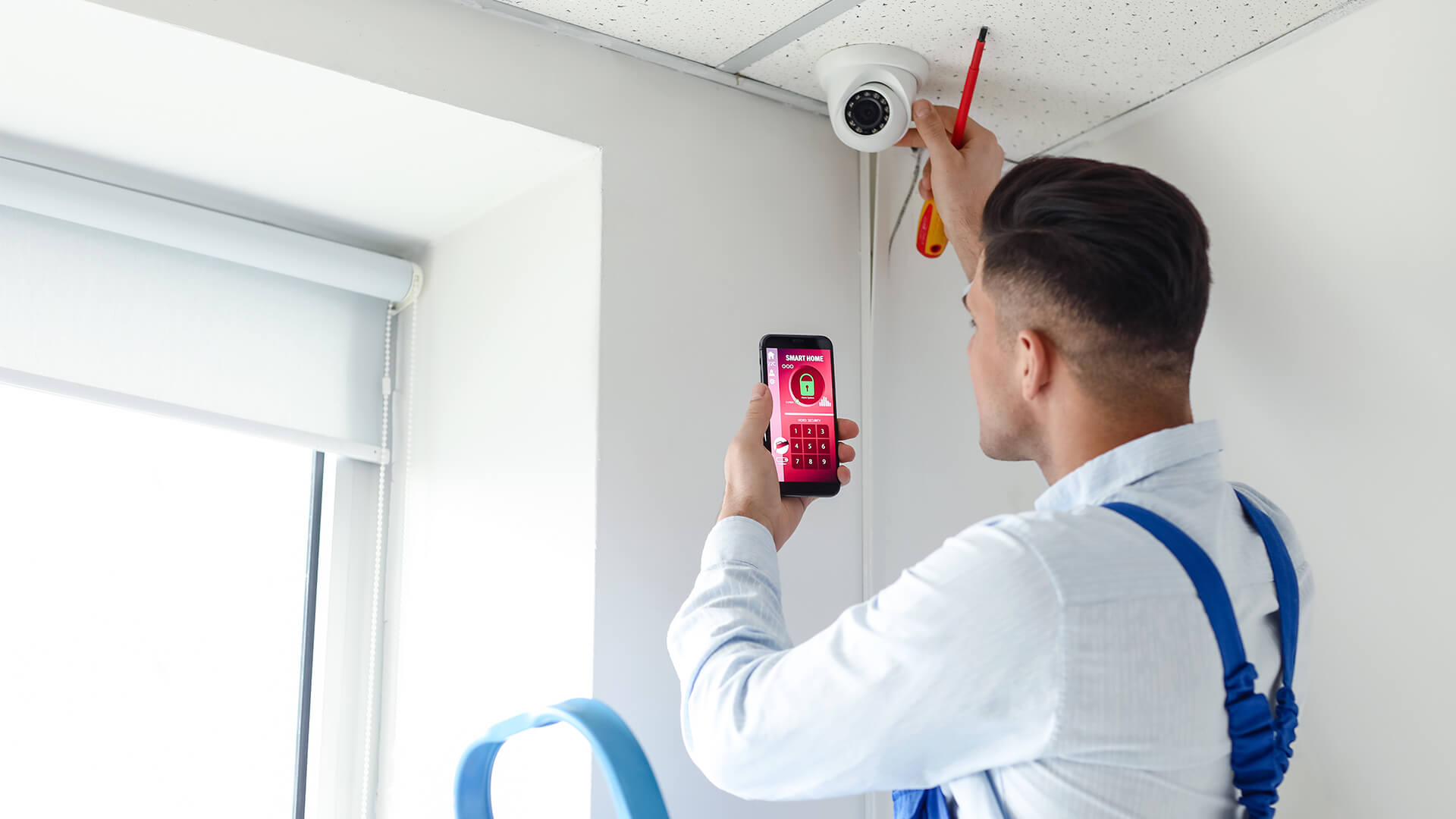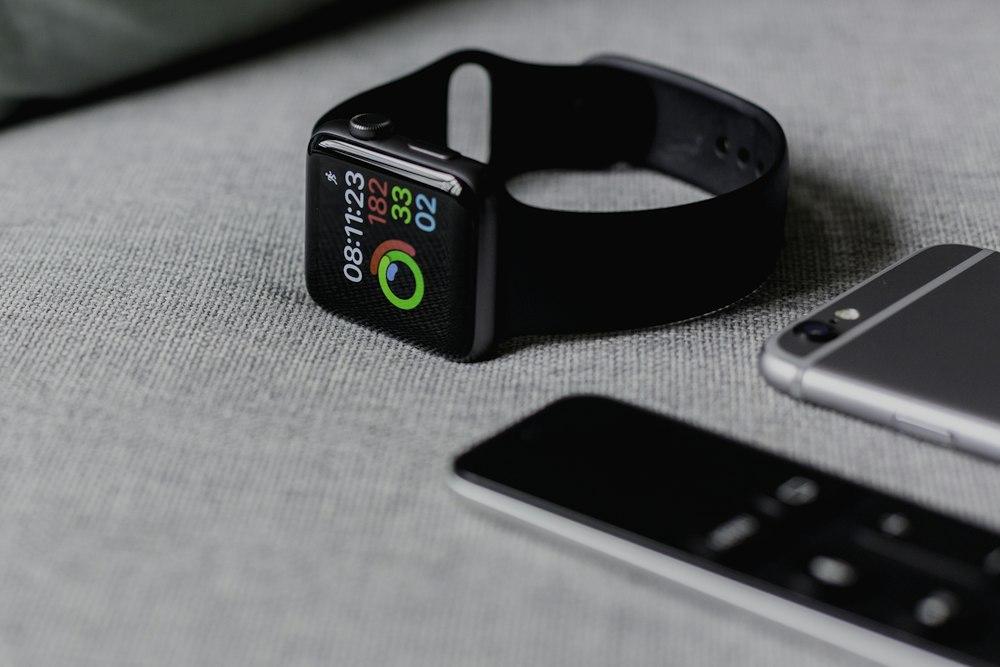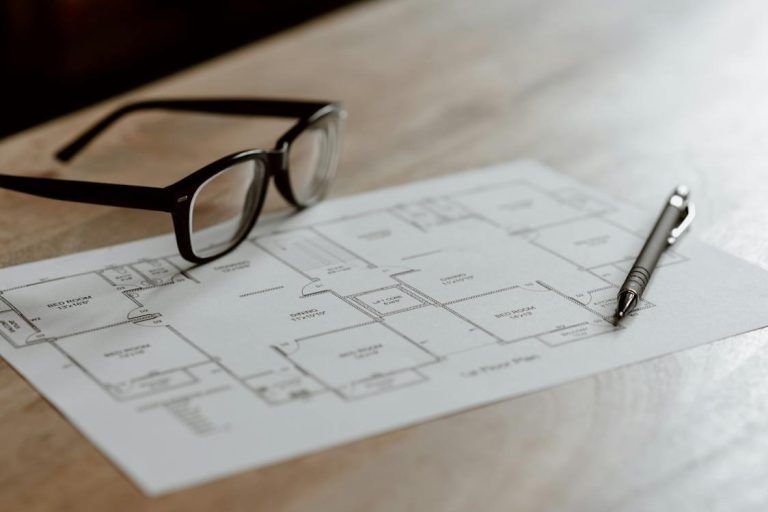The use of smart technology in home renovation has evolved significantly over the years.
Initially, smart home technology referred to standalone devices or systems that required separate controls. With the advent of home automation systems and platforms like Google Home or Amazon Alexa, modern devices can work together seamlessly, providing homeowners with a fully integrated smart home experience.
In this blog, we’ll introduce the benefits of smart home technology for your home renovation, its different products, and the future it holds for homeowners.
Why Should You Consider Using Smart Technology in Your Home Renovation?

Smart technology in home renovation refers to the integration of automated or remotely controlled devices and systems into a home’s design and functionality. This technology is designed to improve a home’s convenience, comfort, and efficiency through internet-enabled devices such as smartphones or tablets.
Here are some reasons you should consider incorporating smart technology into your home renovation project:
Enhanced Convenience
Smart technology can automate various tasks around your home, from adjusting the thermostat and lighting to locking doors and windows. This automation can make your daily routine more efficient and convenient.
For example, a smart speaker can control multiple devices with voice commands for different functions. You can use this to set up automated routines that adjust your home’s environment based on your preferences.
Improved Energy Efficiency
Many smart home devices are designed to optimize energy use, which can help reduce your utility bills and environmental footprint.
For example, smart thermostats can learn your schedule and temperature preferences to heat or cool your home more efficiently. Similarly, smart lighting systems can automatically adjust the brightness of connected devices based on the amount of natural light available.
Increased Home Security
Smart technology can also enhance your home’s security.
Smart locks and security systems allow you to monitor your home remotely and receive alerts on your smartphone if any unusual activity is detected. Some systems can even recognize familiar faces, providing an extra layer of security.
| Old School Safety: Smart technology systems aren’t foolproof since they’re limited to available internet access and electricity or battery power. To cover all your bases, using a key copier to keep duplicates of your house keys is still a tried and tested security option. |
|---|
What Kinds of Smart Technology Can Improve Home Renovation?

Incorporating smart technology into your home renovation can be a worthwhile investment that enhances your home’s functionality, comfort, and value.
You can start with a few devices and gradually add more over time as your needs and budget allow. Most smart devices are also compatible with each other, allowing you to create a cohesive, interconnected system that can be controlled from a single app.
You can incorporate numerous types of smart technology into your home renovation. These include:
- Smart thermostats: These devices allow homeowners to control their home’s heating and cooling systems remotely. They can also learn a homeowner’s schedule and preferences to adjust the temperature for comfort and energy efficiency automatically.
- Smart lighting: Smart lights can be controlled remotely, programmed to follow a schedule, or even set to respond to the amount of natural light available. Some smart lights can also change color or brightness on demand.
- Smart security systems: These systems can include various devices, such as smart locks, security cameras, and alarm systems. Homeowners can monitor and control these devices remotely, receive alerts about potential security issues, and even grant or deny access to their living spaces remotely.
- Smart appliances: From refrigerators to washing machines, smart appliances can provide homeowners with remote control, scheduled activation, and even diagnostic capabilities. Some smart appliances can also integrate with other smart home systems for greater functionality.
- Home automation systems: These systems tie together various smart home devices into a single, cohesive system. Homeowners can create complex interactions between devices, such as having the lights turn on and the thermostat adjust when they unlock their smart lock.
Is Smart Technology in Home Renovation Cost-Effective?

The initial cost of purchasing and installing smart technology can be high.
The cost can vary widely depending on the type of technology, the brand, and the complexity of the installation. For example, a smart thermostat can cost anywhere from $200 to $500 to install, while a smart security system can cost several thousand dollars.
It’s important to understand that including smart technology in your home renovation is a long-term investment in energy efficiency.
The cost-effectiveness of smart technology in home renovation can be evaluated from these perspectives:
Energy Savings
Smart technology can lead to substantial energy savings.
For instance, smart thermostats can learn your schedule and temperature preferences to adjust themselves accordingly. This can result in significant savings on heating and cooling costs.
Similarly, smart lighting systems can be programmed to turn off when no one is in the room, reducing electricity usage.
Increased Home Value
Smart technology can increase your home’s value.
Investing in smart technology can future-proof your home and make it more appealing to tech-savvy buyers who prioritize modern amenities. As smart technology becomes increasingly prevalent, homes with these features may have a competitive edge in the real estate market.
Reduced Risk
The upfront costs of smart technology can be high, but the potential for increased home value makes it a cost-effective choice for many homeowners. Insurance companies also share this thought.
Some insurance companies offer discounts for homes equipped with smart technology. For example, a smart security system can reduce the risk of burglary, which might qualify you for a discount on your home insurance premium.
Can You Install Smart Technology Devices Yourself?

Installing smart technology devices in a home renovation project can be a do-it-yourself (DIY) task or may require professional assistance. It largely depends on the complexity of the device and the homeowner’s technical expertise.
Simple devices such as smart plugs, smart bulbs, or smart speakers usually have a straightforward installation. These devices typically come with user-friendly instructions and can be set up using a smartphone app.
For more complex systems like smart thermostats, smart security systems, or whole-home automation systems, professional installation may be recommended. These systems often require wiring modifications, integration with existing home systems, and a more detailed setup process.
When choosing a professional installer, homeowners should consider the following factors:
| Factor | Description |
|---|---|
| Experience | The installer should have experience with the specific type of smart technology being installed. You can confirm this through user reviews or their involvement in previous projects. |
| Certifications | Many manufacturers offer certification programs for installers. An installer with these certifications will have a proven proficiency in handling these devices. |
| Warranty | Ensure the installer offers a warranty for their work. This will minimize your losses in case of any issues after the installation. |
Some smart devices may require regular adjustments or updates, which can be costly or time-consuming. Make sure your maintenance of these devices doesn’t go past your monthly budget limit.
| Prepping For Installation: Technology and pests don’t mix well, especially if your home is exposed to intruders that can damage wires and electrical sockets. Remember to contact professional pest control in Medford, Oregon, to prep your home for a renovation. |
|---|
What Are the Future Trends in Smart Home Technology?

The future of smart home technology is promising and is expected to revolutionize our lives. Here are some of the emerging trends that homeowners should be aware of:
- Artificial Intelligence and Machine Learning: AI and machine learning are becoming increasingly prevalent in smart home technology. These technologies allow devices to learn from user behavior and make intelligent decisions.
- Interoperability: Interoperability is a key trend in smart home technology. This allows different devices to communicate and work together, regardless of the brand or manufacturer.
- 5G and IoT: The rollout of 5G technology will have a significant impact on smart home devices. This will be particularly important for IoT devices, which rely on constant connectivity to communicate more effectively.
- Health and Wellness Tech: Future devices will monitor air quality, humidity, and other environmental factors to ensure a healthy living environment. Smart home technology can also play a crucial role in remote healthcare and telemedicine.
Conclusion
These advancements in smart home technology are expected to reprioritize how we approach future home renovations. Homeowners will need to consider not only the aesthetic and functional aspects of their renovations but also the technological capabilities.
Smart technology has become an integral part of modern home renovations, offering a range of benefits that can significantly enhance your living spaces. As with any investment, it’s important to research well and choose the products that best fit your needs and budget.

